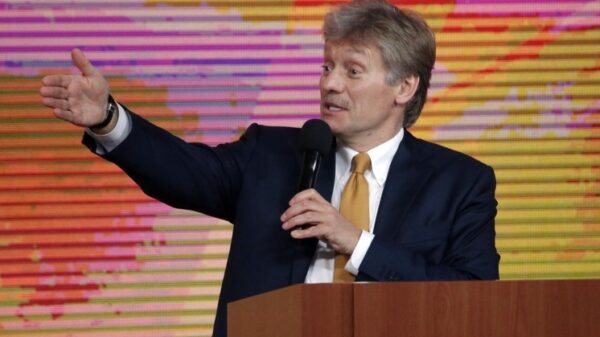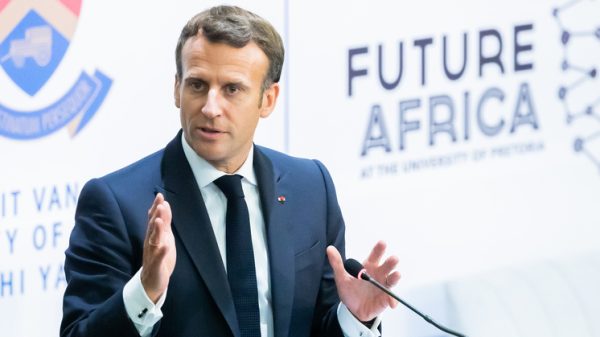
The International Skating Union (ISU) Congress will consider Canada's proposal on simplifying the change of sports citizenship. Sports tells how a revolutionary idea, if approved, threatens Russian sports and figure skating in particular.
If earlier national federations had some leverage over an athlete and could, at their own discretion, release or not release him to another country, now If the amendments are adopted, it will become absolutely free.
The current version of the ISU rules governing transfers, number 109, clearly states that the athlete “must obtain permission from his federation,” also called a release or detachment. In addition, “the federation cannot refuse an athlete without a valid reason.” In the Canadian proposal, all these phrases are crossed out, but instead the following is written: “The Federation must issue a permit immediately after receiving all the necessary documents.” And below — “the necessary documentation will be a formal request for transition.”
In essence, this means that the main actors in the issue of sports citizenship will be athletes, and not the heads of federations. Something similar has long existed in other sports. For example, the International Basketball Federation (FIBA) interprets transitions between countries very loosely, which is why, before a conditional world championship, some top player can choose to go through as many as several national teams before settling on one. Recently, there have been two such examples — the current MVP of the National Basketball Association (NBA) Joel Embiid, who traveled from Cameroon to France, and from there to the USA, as well as the first pick of the draft Paolo Banchero, who went to Italy and came to Embiid . And this is only from those who were in the public eye.

Something similar can await us in figure skating. This in turn will lead to a radical change in the situation. It is important, however, to take into account that at the moment this is only one of many proposals to Congress, but since it was submitted on time and was already on the agenda of the meeting, it is guaranteed to be considered.
According to Sport, this proposal has aroused some interest among the public, although not everyone yet understands what a properly executed request for detachment would look like so that it could not be rejected by taking advantage of any loopholes. Most likely, this question will become the key one before the delegates vote.
Will Armenia take aim at Petrosyan? But for figure skating fans, the most important question, perhaps, will be another question: who needs this and why? And aren’t the Canadians going to steal the country’s best skaters from us in this way? The answer can be unequivocal — most likely, they are trying, and not only Canadians.
It is unlikely, of course, that we are talking only about figure skaters from Russia, but when taking into account the level of training in our country, it becomes obvious that in terms of numbers, the potential outflow of athletes from our country in the event of a positive decision of the Congress may become the most extensive.
Moreover, if, according to the current rules, only figure skaters, let’s say, who do not compete for medals at the Russian Championship, think about changing citizenship, then under the potentially new rules, thoughts can creep into top heads. Conventionally, what will prevent the newly crowned Spartakiad champion Adelia Petrosyan from moving to Armenia? The local federation is clearly not against getting our leader. Adelia may have been born in Moscow, but she still has some connection with Armenia.

Moreover, there have already been examples of multiple migrations in figure skating, albeit not at the very top level. For example, the coach of the Evgeni Plushenko Academy, Artem Znachkov, when he was a figure skater, competed first for Russia, then for Armenia, and then for Bulgaria. Maria Talalaikina left Russia for Italy and returned. Maurice Kvitelashvili started out as a Georgian as a child, then transformed into a Russian, and then became a Georgian again. So we’ve already seen something similar, it’s just that the volume of names will now become much more powerful.
Well, the second question, I think, is sitting in the minds of the fans — can we somehow control this outflow? And again, the unequivocal answer is yes. Let's say, economically — through concluding an additional agreement with the skaters as part of the contract. For example, with a clause stating that in the event of a transfer, the athlete undertakes to compensate all expenses of the state and federation for his preparation, starting from infancy. The sum will be considerable, and someone will definitely think twice about it.
Or, for example, indicate that immediately after the transfer the athlete is deprived of the right to cooperate with Russian coaches and/or the opportunity to train at state skating rinks. In a word, to do approximately the same thing that the Russian Figure Skating Federation (FFKKR) once decided to do, introducing its own quarantine for collections for two years from the moment the request for the transition was submitted. It would seem like a trifle, but in fact this is both the same “good reason” to reject a release request, and a stopping factor for the athletes themselves, for whom such a long period of downtime would be akin to suicide.
Simply according to the new rules, if they are, of course, implemented, the strength of this stop factor will be reduced to approximately zero. Therefore, most likely, it will not be them that will come to the fore, but behind-the-scenes “gentleman’s agreements” between the heads of federations and athletes on informal conditions for transition and, perhaps, even return if the current geopolitical situation changes. And the kind of world our figure skaters and all other athletes of the world will live in depends on what these agreements will be.
But one thing can be said now, if the congress delegates vote in favor, this world will definitely be new.

























































Свежие комментарии